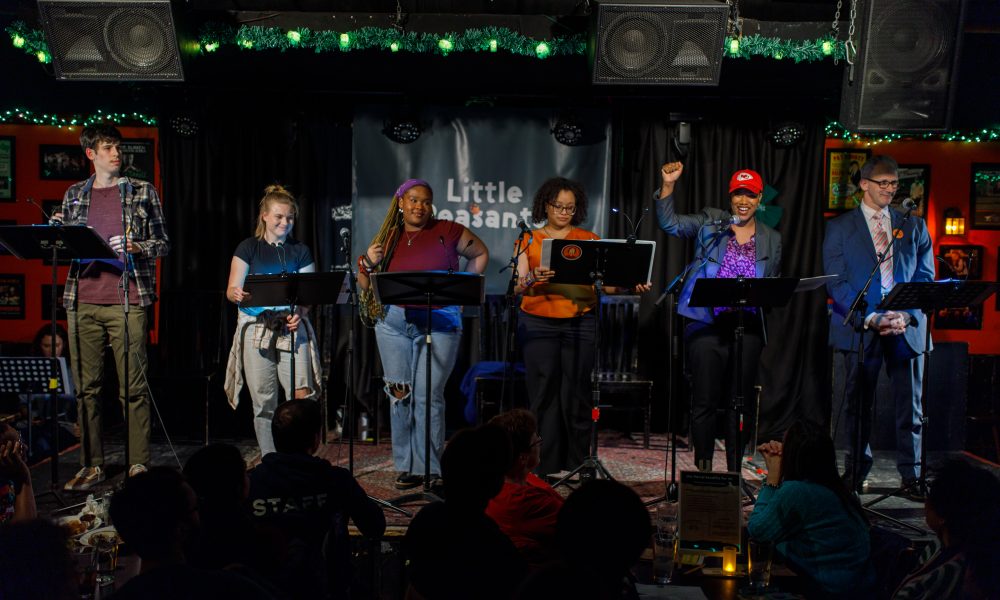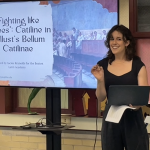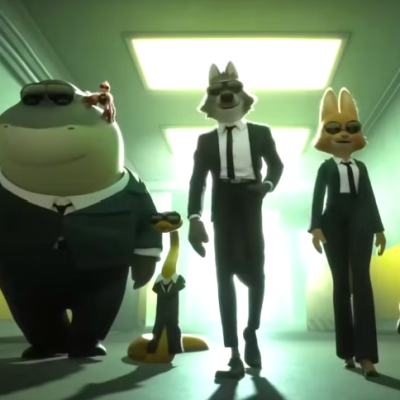Little Peasants furthers Food Tank’s mission by shining a light on food workers who play a key part in our food system
“Little Peasants,” a new play written by Bernard Pollack, depicts the trials and tribulation workers would have to endure to set up a union.
The story takes place in a fictional coffee shop called Unicorn Coffee. The night before the union vote, Unicorn management organized a meeting to persuade Unicorn coffee workers to vote against the union.
Pollock understands the nuances of establishing a labor union thanks to his own experience and the extensive research he conducted. He’s the co-founder of Food Tank, a non-profit research and advocacy organization working to build a more sustainable food system. Before writing the play, he went out to interview dozens of baristas, shift supervisors, and managers. In an interview, he said he blended together “people’s lived experiences and stories to come up with a narrative,” which took shape as “Little Peasants.”
Little Peasants is also a work in progress that is being refined with audience response from serial workshops. During its second workshop reading on Feb. 21, 2024, Pollock said that workshop readings help him gain feedback on how to improve the play, while the audience also plays a role in shaping the play.
Pollock recognizes the power of unions by understanding, ”Individually you are not powerful in the eyes of a corporation, but when workers come together, they have the power to ask for things such as a wage increase.” A union enables an individual to have the power to negotiate improvements, benefits, wages, and so much more. Overall, workers gain a seat at the table and get a say in decisions that affect them.
Pollock noted that,“people don’t understand the level of courage that is required to decide to go and form a union in the United States and so [Little Peasants is] trying to shine a light.”
Ashley, a character from the play, who embodies the mental hurdles people go through when deciding whether to have a union or not. Unicorn Coffee provides Ashley a source of income even though it is irregular, health insurance, and a free meal once a week. Since Ashley is a mom with two kids the benefits are essential for Ashley. Ashley would be risking her livelihood if she chose yes for a union.
Pollock guessed that the audience would be shocked to know that companies would do things that include, “ threatening to close, threatening to move people’s shifts, threatening firing people” to discourage employees from voting for a union. Despite the company’s efforts to stop Ashley from voting yes, Ashley chose yes because a union allows her to have power and a say in decisions that affect her and a union can help better her working conditions.
Little Peasants furthers Food Tank’s mission by shining a light on food workers that play a key part in our food system. Pollock identifies that, “If we’re not taking care of the people that feed us, you know, as a society, and they’re not able to have a living wage, you know, then it’s truly just a completely broken food system.”
A more sustainable food system can only be built by companies having less resistance to unions. Unions allow workers to have better working conditions, benefits, and wages and pushes society to have a more sustainable food system.
Pollock hoped that “audience members leave with a more nuanced understanding of an issue that I feel like we’re not really exposed to, unless we’ve been through.”







